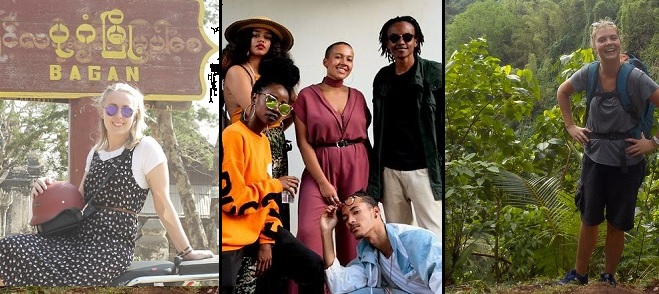After completing the coursework in the first two semesters, you will undertake independent fieldwork of up to six months. This is an opportunity to travel abroad and you get to choose the destination, based on the topic of your thesis and in cooperation with your supervisor. The data you collect during the fieldwork will form the basis of your master's thesis.
Our master's students travel to all parts of the world, from Norwegian towns and villages, to New York, South Africa and Pacific islands.
Our researchers have many exciting projects you can join. Check out the project forum pages for more information.
Katrine travelled to Ureparapara
One of our students, Katrine Brunvoll, conducted her field work on the island of Ureparapara, which belongs to the country Vanuatu in the Pacific Ocean.
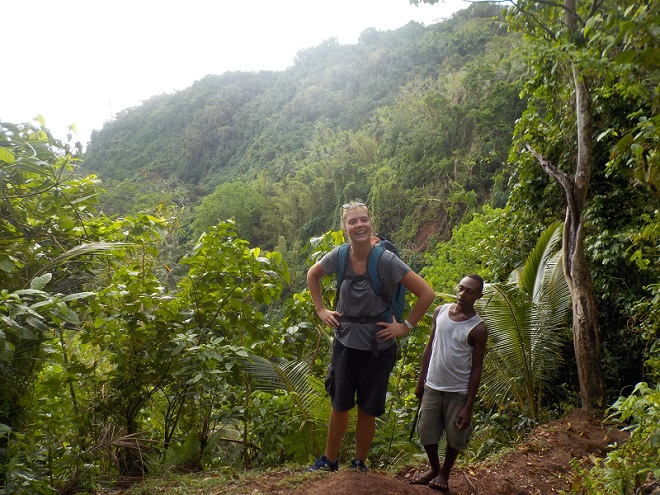
"I lived in Divers Bay located on one side of the island. I wanted to go to the other side to see how the people lived there. However, the family I lived with, and the rest of the people in Divers Bay, thought I wouldn’t manage to walk to the other side. The reason: Because I am white, and therefore weak.
Stubborn as I am, I still chose to go to the other side. I travelled with a cargo ship on my way there, but on the way back I wanted to walk. I spent six hours walking home, up slippery paths, through a dense jungle and a landscape characterized by the last cyclone that hit the island. I am the first white person who has walked from one side of the island to the other. Before me, no white people had walked the path that I, and many local people before me, have walked.
Back in Divers Bay, I received a lot of respect from the inhabitants, and I proved to everyone that I am stronger than they think, even though I am white. I had a wonderful experience in the field!"
Katrine Brunvoll
Marte travelled to Yangon
Marte Rieber Bakke did her field work in Yangon, Myanmar, where she studied knowledge sharing through social media.
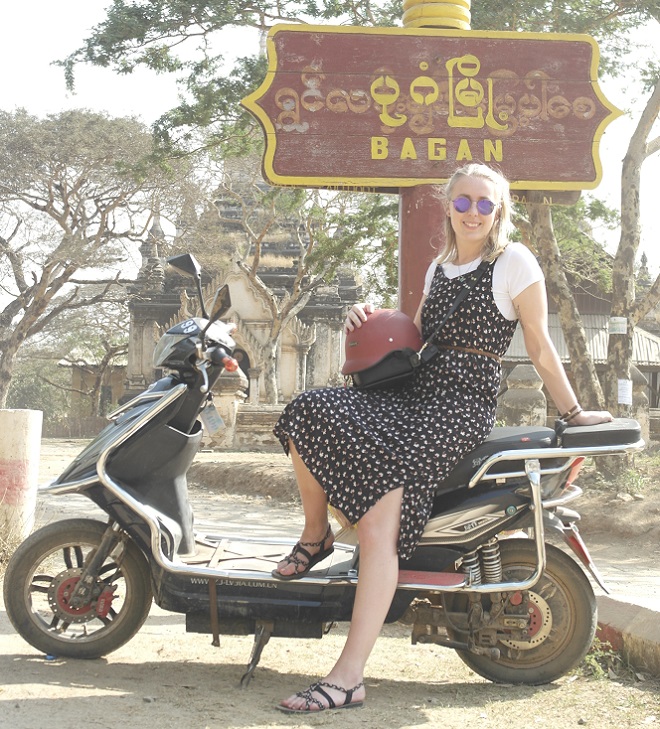
"I experienced Yangon as a chaotic and intense city when I first arrived there, but it is precisely that chaos I am going to miss. For my part, the experience in the field has been incredibly positive and challenging. I have met so many wonderful and interesting people and been places I would never have seen otherwise. I have gained many new perspectives and I come home to Norway with experiences I will appreciate for a long time. I have also gained new experiences from lecturing and leading workshops during my stay there.
The challenges have mostly been related to uncertainty about the data itself. Occasionally, when reading my notes, I have felt like I am reading the diary of an 11-year-old at summer camp! This has been stressful, but at the same time, I know that there is enough data and that it is quite normal to feel this way when your are in the field.
The upswing is that the stories hiding in the notes will give me a lot of laughter over the years to come, including the reason for why some of my assets still have a distinctive smell of fish.
Fieldwork is highly recommended!"
Marte Rieber Bakke
Ida travelled to Nairobi
Ida Ufoma Helgheim Ijeabuonwu conducted her fieldwork in Nairobi, Kenya, where she studied feminism among young, middle class women in the city.
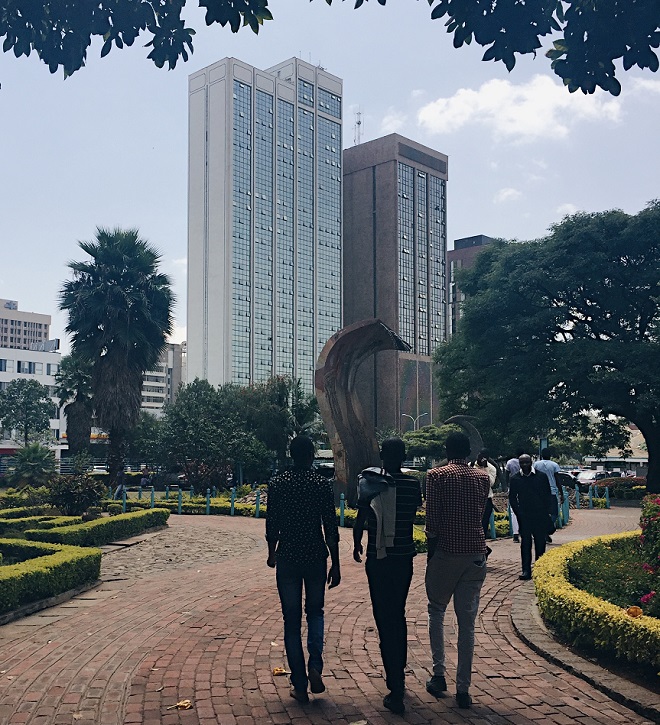
"Conducting ethnographic research, and having the privilege of living in Nairobi for six months has changed my way of thinking, not only academically, but personally as well. Researching feminism allowed me to spend time with interesting, creative, passionate and wonderful women - and men - whom I now proudly call my friends.
Doing fieldwork in a big city can be challenging, because you often have to be creative in terms of defining your field site. I used Instagram, and the city’s hippest bar as a way of finding informants. Instagram was my way of discovering, and getting in contact with, potential informants. I had not foreseen that an app would work so well as a research tool. The bar was also a perfect spot for meeting new people, and it became one of my main hangout spots throughout the fieldwork.
I am very grateful for having had the opportunity to spend half a year, in a country of my choosing, solely with the purpose of conducting research. It has been an invaluable experience." ?
Ida Ufoma Helgheim Ijeabuonwu
Matias travelled to the Valparaíso region
Matias Lyngved Pizarro conducted his fieldwork in Chile, where he studied avocado production in the Valparaíso region.
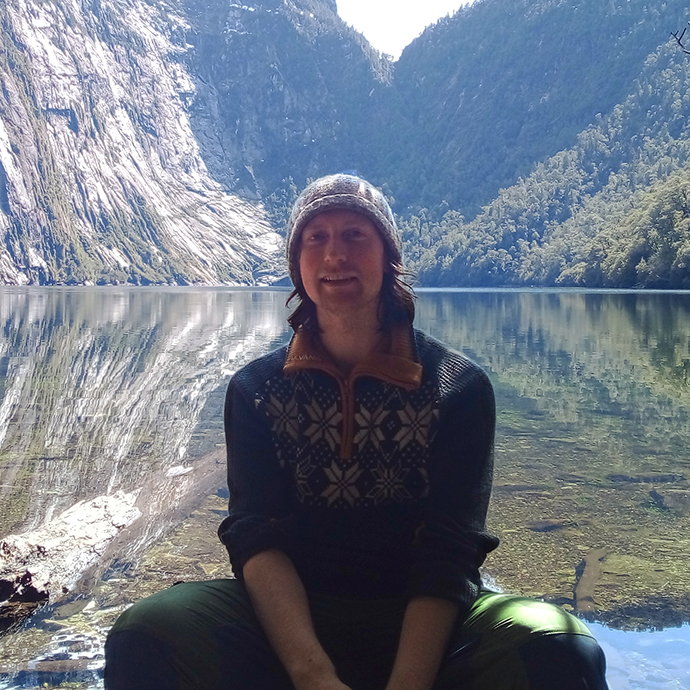
"I used a lot of my time visiting a family that runs an organic avocado farm in an area called 'la capital de las paltas'. In the picture I explore Chile's temperate rainforest where I visited 4000 year old trees. Endemic forests are being replaced by pine and eucalyptus trees, the same way avocado plantations are replacing endemic vegetation in central Chile. Many informants encouraged me to go south based on the topic I am exploring - even though avocados cannot be grown in southern Chile.
Data was obtained through living along side the informants. The day usually started with drinking coffee and having breakfast with 'el patrón' and 'los campesinos' in the kitchen and then participating in the day's chores, such as harvesting avocados. Other times, I conducted interviews with informants via Zoom, in a restaurant, or in a park - everything from activists and agronomists to ordinary consumers".
Matias Lyngved Pizarro
Michelle conducted her fieldwork in Oslo
In collaboration with NAV, Michelle Helene Nymoen writes her master thesis on corona unemployment and redundancy among young adults.
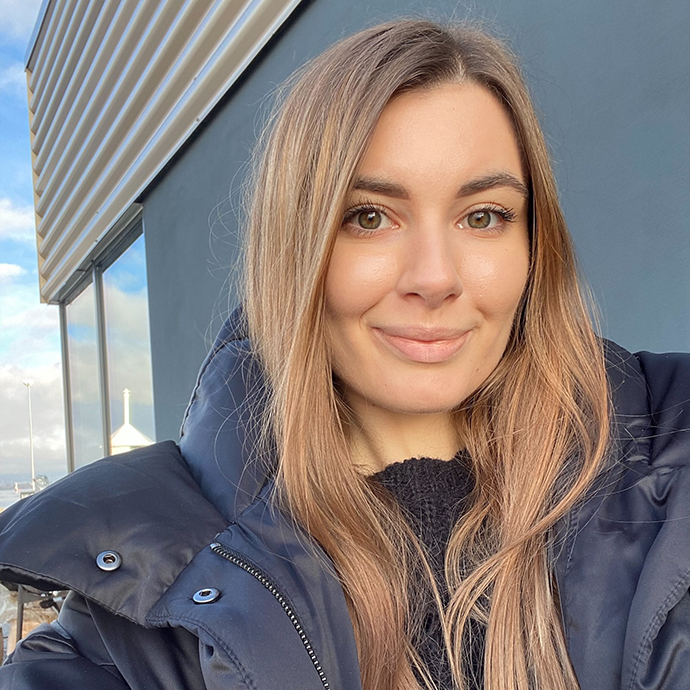
"At the beginning of the field work I was as an intern in a private company that finds work for the unemployed. That way I managed to get in contact with relevant people for my research.
After completing my internship, I did a lot of digital and physical interviews, meetings with NAV to participant observation with the laid off and unemployed. With some of the infection control regulations lifted, it was easier to follow people around in their everyday life, and most of my informants are now back in their jobs.
I participated in everything from work at home or the office to shopping, restaurant visits and training, socializing with colleagues, walks, and other leisure activities. When I wasn't not out in the field or having meetings, I read relevant literature, follow the news, transcribe and read through field notes".
Michelle Helene Nymoen
